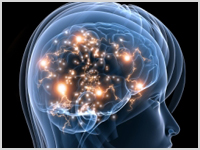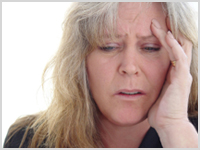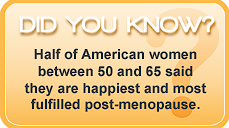
MENOPAUSE 101
The story
 First thing’s first…menopause itself requires no medical treatment. It’s natural. It’s not a disease or disorder. It’s an unavoidable stage in EVERY woman’s life. It’s the symptoms that need medical assistance.
First thing’s first…menopause itself requires no medical treatment. It’s natural. It’s not a disease or disorder. It’s an unavoidable stage in EVERY woman’s life. It’s the symptoms that need medical assistance.
The word menopause literally means the “end of monthly cycles.” Menopause is marked by the permanent cessation of ovarian function, usually beginning around the age of 50. But no two people are alike. And so there is no steadfast rule or formula telling how or when menopause will affect each individual.
Plus, the onset of menopause can be affected by personal traits such as cigarette smoking, body mass index, race or ethnicity, illnesses, chemotherapy, radiation, and obviously procedures such as hysterectomies.
While menopause isn’t scientifically declared until menstruation has been absent for a full year, signs of early menopause (perimenopause) can show up much sooner, often as early as 40. And since all suffering associated with menopause is really caused by the symptoms, you don’t necessarily have to be in full-on menopause to feel its wrath. Scientists have discovered 34 different symptoms of menopause. For a full breakdown of all 34 symptoms, click here.
The Science
 Ok, so we know that menopause is associated with a drop in hormone levels, which in turn creates a domino effect of symptomatic stress. But what causes those hormone levels to drop?
Ok, so we know that menopause is associated with a drop in hormone levels, which in turn creates a domino effect of symptomatic stress. But what causes those hormone levels to drop?
Well, the layman’s answer is ‘aging.’ As we get older, our hormone levels decrease. But how? And why? A team of researchers at the Soviet Academy of Sciences have recently made a remarkable breakthrough that may revolutionize how we understand the aging process.
Dr. Vladimir Dilman and his team of scientists have come up with what’s called “The Neuroendocrine Theory of Aging.” Basically, Dr. Dilman’s theory states that aging is caused by a weakened or confused hypothalamus (the area of your brain that controls the sending and receiving of hormonal signals between your nervous system and your pituitary glands). Back in layman’s land, that means menopause caused by a hormonal imbalance in your body can be traced up to an imbalance in your brain; more specifically your hypothalamus. (This theory has recently been supported by a separate study performed by students at the New Jersey Medical School).
So what does that mean for you? It means that the Neuroendocrine Theory of Aging could hold the key to better relief for symptoms of menopause. At least we hope. Instead of looking just at the effects of menopause, this theory focuses on the root of the problem.
In addition to aging, there are a few other ways to set off menopause:
Hysterectomies – While a hysterectomy doesn’t always cause menopause, it can trigger serious symptoms. The removal of your uterus and ovaries means you immediately cease having periods and your hormone production instantly drops, often resulting in hot flashes and other symptoms of menopause.
Radiation Treatment – Intense cancer treatment such as chemotherapy can induce menopause and thus set off symptoms such as hot flashes for the duration of treatment.
Primary Ovarian Insufficiency – This affects only about 1% of women, but those with POI tend to hit menopause before the age of 40. Primary Ovarian Insufficiency – caused by a genetic predisposition or autoimmune disease – means your body simply cannot produce sufficient amounts of reproductive hormones.
The Facts
- Perimenopause can begin as early as your 30’s.
- The average woman hits menopause around the age of 51.
- Some women experience postmenopause until around the age of 60.
- Smoking increases your odds of early menopause.
- 80% of menopausal women suffer from hot flashes.
- 40% of menopausal women suffer from mood swings caused by hormonal dips.
- By the year 2030, it is expected that there will be 1.2 billion women who are 50 years of age or older. That means there will be roughly 1.2 billion women suffering from menopause.
- Before menopause, women are 3× less likely to have a heart attack than men. After menopause, they have an equal chance of having a heart attack as their male counterparts.
- 1 in 4 women are affected by osteoporosis after menopause.
- Even though fertility decreases as you approach menopause, you can still get pregnant with irregular periods. In fact, the second highest unintended pregnancy rate is for women between 40–44 years old.
- A 1998 Gallup survey states that more than half (51 percent) of American women between the ages 50 and 65 who had reached menopause said they are happiest and most fulfilled now more than ever.

Help us help the world. Millions of women out there are suffering from menopause, and so are their families. The more information we share, the more we can help one another.



- Envisioning ‘cool’ scenarios during hypnotherapy helps women cope with hot flashes
- Progesterone for hot flush and night sweat treatment
- Progesterone for Symptomatic Perimenopause Treatment
- Clarifying the correlation between HRTs and breast cancer
- Losing weight may help relieve hot flashes in obese women
- Progesterone Cream for Vasomotor Symptoms of Menopause


